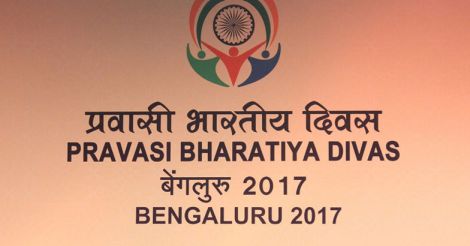Although the government and friendly media have declared the Pravasi Bharatiya Divas, 2017 in Bengaluru as an unprecedented success in terms of attendance and achievements, many participants, particularly those from the Gulf, went back disappointed on both counts. Eight thousand delegates from 72 countries is a gross exaggeration as there were only less than 1,500 delegates from abroad. The rest was obviously from India. There are hundreds of outfits in India as part of the ‘Pravasi Industry”, consisting of returnees, business interests and others who use the PBDs for their own purposes.
The problem with PBD is that the Pravasis who come for it have different interests. Those from the US and the west have problems of prestige and they come for a holiday to look for business and recognition. They look for concessions and security of property and they do not remit money to India. Their bodies are abroad, their money is in Swiss banks and their sentiments are here. They are quite happy with photo opportunities, which will add to the glamour of their homes. However, those from the Gulf and Africa have real survival issues in the face of a possible exodus for economic and security reasons.
Prime minister Narendra Modi is interested only in the first category and he expects the embassies to deal with the “small” problems, as he said in Dubai when 50,000 workers went to listen to him in the hope of seeking solutions to their problems. This attitude became evident again in Bengaluru. A separate session on the Gulf, which has been a regular feature of all PBDs was thoughtlessly canceled. This is what hurt the Gulf Indians most as they were hoping that issues like exploitation by airlines etc, would be addressed. The damage caused to the Bengaluru PBD on this account was grievous. The only good point that the leader of the Gulf Indians, Yusuf Ali, could mention was the decision announced some time ago that Pravasi investments would be equated with local investments and that the present restrictions would be removed. First of all, it was not a new decision and secondly, that benefited only the “big sharks”, as an aggrieved Pravasi told the media.
One issue that the Gulf Indians raise again and again is the utilization of the huge amounts the Govt of India has been collecting as emigration fees. The utilization of these funds is not known and even a figure of the accumulated amounts has not been announced. The demand is that this money should be spent on welfare activities of returning workers. No one was able to provide a response to this demand, as another Gulf Indian publicly pointed out.
Portraits of the prime minister and his quotes were displayed everywhere from the airport to the venue, as though he was not a democratically elected leader. It is in dictatorships that the leader makes his presence everywhere to remind the people that the big brother is watching. He gave an overdose of his demonetization lectures to the Pravasis, who wanted to complain about the problems they faced in meeting their requirements in India, including investment. No definite indication was given about the possibility of relief so that people could use their own money. Everywhere, the complaints were about the inconveniences caused and the corrupt practices of bankers and others, who brought all the black money into the banks. This looming issue dominated all the conversations, making the PBD a complaints bureau. Dr. Azad Moopen expressed satisfaction over the plans for skills development of Indians before they went abroad.
The presence of the prime minister of Portugal and the vice president of Suriname made a good impact and the Pravasi award to the former was appropriate. The award to some important organizations in the Gulf was also a good gesture. Among the 30 awardees, people like Vinod Patel from Fiji, Seetharam of the Qatar Bank, Nisha Biswal of the State Department and Dr.Shivangi from US were great choices. It was not clear why the number of awardees was doubled. The change in criteria did not make much of a difference as the majority of the winners were not personal achievers in their fields. The stress was more on social service and business.
There was general disappointment that the PM did not announce any major measure for Pravasis. Extending time for conversion from PIO cards to OCI cards or making OCI cards available to the Girmityas, the descendants of indentured labor did not make any impact.
PM Modi repeatedly asserted the role of Pravasis in the development of India, but he did not match words with deeds. In his third year, rhetoric will not be enough to sustain the involvement of the Pravasis in India’s development. Once disillusion sets in, it will be difficult to revive interest. Innovative ideas of mutual benefit will have to be designed for the next PBD, instead of resting on imaginary laurels.
(T.P. Sreenivasan is a former Permanent Representative of India to the United Nations, Vienna and Governor for India of the International Atomic Energy Agency, Vienna and Ambassador to Austria and Slovenia (2000-2004).)

























